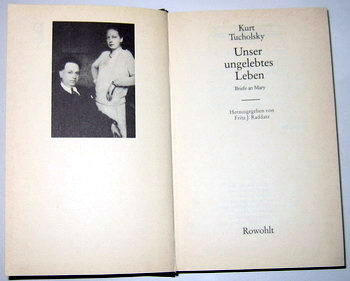Languages, languages – sorry, nothing spicy or racy.
Last weekend someone asked me “do you think in German or English?” It took me not a second to answer “that depends on the subject and the mood I am in.”
Living with two languages is fun. I actually learned more than one foreign language, but English is the only other language I use besides German nowadays. English is also the language I love just as much as German.
What I realized through the years however is this: Mastering a foreign language is a life-long learning process. It needs more than having a large vocabulary at hand and (hopefully) perfect grammar. Understanding the society the language is used in is a big key. How can one truly understand a poem by Wordsworth to its fullest extend without knowing the times and mores he lived in and with? The works of Walt Whitman without the knowledge of what went on in his country (and his life) when he was writing? Or jump forward – modern writers in the UK and the US without a strong background of political and sociological changes in said countries?
Coming back to subject and mood – yes, these factors are important when quietly turning over thoughts in my mind. Generally it works like this: With everyday subjects or work-related ones, I think in English. With subjects of a more personal mode or slow contemplation of matters important on a deep and profound level – out comes the German.
And when I want to read German at its best and fullest and most innovative or when I am afraid of losing my grasp on my native language, I turn to an old favorite: “Unser ungelebtes Leben”, the letters of Kurt Tucholsky to his wife Mary. The mastery of the language, the insight into life cultural and politic (and those times were deeply troubled), the quest for personal happiness which ended in deep desperation, all this combines to make me think that maybe, just maybe I love the German language just a wee bit more than the English one. Which I will surely be forgiven for.

Should I ever be asked which book would be my choice to take to that uninhabited island – this would be the one.
“Mastering a foreign language is a life-long learning process. ” So is mastering one’s native language. Languages are not static. They are continually evolving. New words are added constantly. Archaic words drop out of usage. One of the reasons you took to English so well, of course, is because it is a Germanic language.
I majored in English in college. Our university had some radical concepts, for that time, which are now standard in teaching college English. One of our required subjects was “British Masterworks”. It was a year long class. The books (2 volumes) began with Chaucer and ended with contemporary writers. Simultaneously, we were required to take a year long class in British history. The theory was that it is impossible to separate the literature of a nation from the events of the period in which it was written. The two courses were synched so that we were covering the same era in each class. Time and again, during the courses, we saw the history of the country reflected in the literature. It also made the literature make much more sense than it would have otherwise. The courses were absolutely fascinating. The history professor was great. For the literature, the university used what at that time was an unheard of concept – team teaching. We had various professors who were experts in certain periods or even certain authors. That professor would teach his or her specialty. For instance, we had a Shakespearian authority. He taught us that portion of the course. He was fabulous.
What would be you “Desert Island” book then?
Oh, my. Hard choice. Either “Hitchhiker’s Guide to the Galaxy”, “Huckleberry Finn”, or “Tender Is the Night”. Probably Huck Finn.
Good choice.
If you like Mark Twain, you will just love this:
http://tinyurl.com/354hua
Very, very funny & very, very true.